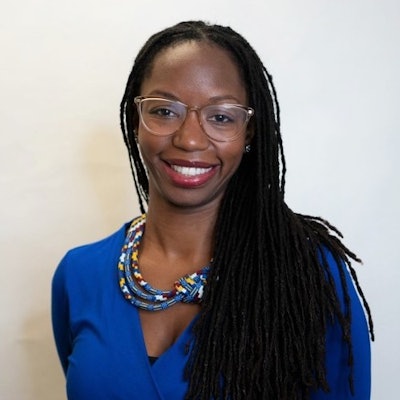When U.S. Senator Brian Schatz (Hawai’i), a member of the Senate Foreign Relations Committee, listens to testimony and asks tough questions about our country’s interactions with African nations, he does so with first-hand experience.
That’s because he studied abroad with our School for International Training program in Kenya as a college student over 30 years ago.
Unfortunately, even as Africa is becoming even more vital geopolitically, similar opportunities are disappearing. The U.S. State Department’s annual Open Doors report showed only 2.4% of all U.S. study abroad students were in Sub-Saharan Africa in recent years, while Europe commands 66% of the total. Elizabeth Clay Roy
Elizabeth Clay Roy
At a time of growing rivalry in Africa between the U.S. and China, students are losing a front row seat to understand what’s at stake. Indeed, as some analysts say China is lessening its lending to African nations because of economic headwinds, America’s future leaders could be missing out on seeing the possibilities. Dynamic innovation and leadership is happening all over the continent, in public health, climate and sustainability, history and culture and urban development; there’s much for American students to learn.
My own study abroad experiences in Africa many years ago were critical for my understanding of the world and my own purpose-filled path. My rich experiences erased the limited narrative about Africa that I had been exposed to from American media.
Through a service-learning summer program in Ghana, I gained knowledge about West African history, culture and sustainable design. Studying human rights and urban development in Johannesburg and Cape Town in South Africa broadened my perspectives on community development. In both countries, deep learning was paired with fun: meeting African students, visiting spectacular beaches and enjoying diverse music.
Beyond my own experience, research in the Academy of Management Journal has highlighted that executives' foreign work opportunities “predicted the creativity ratings of their [work] collections” when evaluated for breadth, depth and cultural distance. The researchers theorized that travel forces people to think in different ways and to develop “cognitive flexibility.”
Neuroscientist Dr. Michael Merzenich, and others have added to this understanding by explaining that travel and moving beyond comfort zones result in greater brain plasticity.
While we believe we offer the largest program portfolios of any U.S. higher education institution or study abroad provider on the continent, the point is larger than the School for International Training, our nonprofit, accredited private university. We need all of the higher ed sector to pay greater attention to and engage more with Africa, as the world’s second most populous continent where the median age is under 19 years old.
When Senator Schatz was studying in Kenya over three decades ago, no one would have imagined he would end up in the Senate on the most important committee dealing with Africa. That’s the point. At the time, education leaders, professors and advisors knew it was important and made sure study abroad was an option for students like him.
We need to provide the same vision that educators had in the past. Unfortunately, at the rate such programs are disappearing today, it’s conceivable the next generation of Americans will have no experiential learning opportunities in Africa.
Elizabeth Clay Roy serves on the board of World Learning and is CEO of the nonprofit Generation Citizen.
















